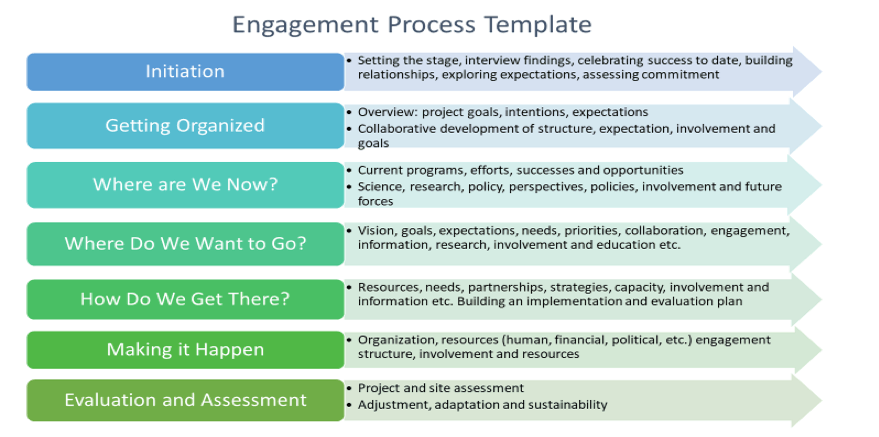An Engaged Approach to Water and Agricultural Issues
It is widely recognized that efforts to address water and agricultural issues frequently lack the assistance, time and resources to effectively listen to, and genuinely incorporate the views of local residents in the development of strategies to address them. In addition, the organizations, interest groups, and agencies working on these challenges generally have limited opportunities to share information and expertise – much less work collaboratively to seek locally-based solutions. Lastly, it is often the case that engagement efforts are designed primarily to get the ‘buy-in’ or approval of local stakeholders rather than being a genuinely ‘community-led’ process – effectively empowering stakeholders with the resources and authority they need to lead efforts, prioritize issues and craft solutions to the challenges they consider most important.
The Water for Ag project seeks to address these long-standing issues and learn from the experience of developing a genuinely community-led initiative coordinated through a ten to fifteen-member Local Leadership Team – comprised of representative from a diverse set of local stakeholders including producers, agricultural organizations, service providers, decision-makers, service providers, local governments, agencies and interested residents.
What Does This Approach Look Like?
Our plan, grounded in established best practices for collaborative decision-making, is designed to foster better relationships and cooperation among community partners with the goal of developing an action plan. We expect this process to take anywhere from 12 to 18 months depending on local priorities. Our process is designed to foster robust discussions and planning around the key benchmarks identified here.
Engagement Process Template
- Initiation
- Setting the stage, interview findings, celebrating success to date, building relationships, exploring expectations, assessing commitment
- Getting Organized
- Overview: project goals, intentions, expectations
- Collaborative development of structure, expectation, involvement, and goals
- Where are We Now?
- Current Programs, efforts, successes and opportunities
- Science, research, policy, perspectives, policies, involvement and future forces
- Where Do We Want to Go?
- Vision, goals expectations, needs, priorities, collaboration, engagement, information, research, involvement, and education, etc.
- How Do We Get There?
- Resources, needs, partnerships, strategies, capacity, involvement, and information, etc. Building an implementation and evaluation plan
- Making It Happen
- Organization, resources (human, financial, political, etc.) engagement structure, involvement, and resources
- Evaluation and Assessment
- Project and site assessment
- Adjustment, adaptation, and sustainability

In Nebraska and Pennsylvania, all four sites will employ a modified strategic planning process to identify and develop their strategies. A modified Delphi approach is being developed incorporating a series of interactive surveys and community meetings to meet the projects key benchmarks.